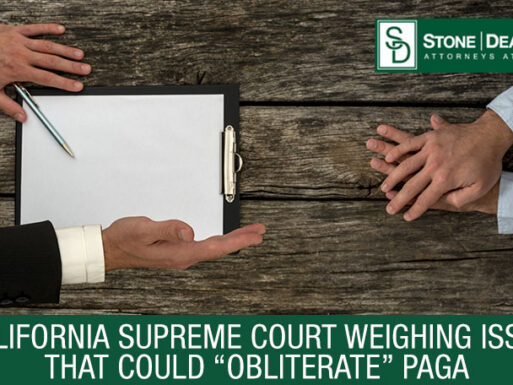Our guest writer, Ron Lewis, has been practicing criminal law for over 35 years and was a former Los Angeles County Deputy District Attorney. In this article, he discusses the common occurrence of self-incrimination in both civil and family court.
When and why do I need to consult with a criminal lawyer?
Hopefully, before you receive a visit from a law enforcement agency.
Recently, I was in a downtown Los Angeles civil courtroom observing a jury trial being conducted by two very experienced tort attorneys, both of which had national reputations for bringing in the big verdicts. The case was a sexual harassment alleged against a wealthy individual by the family’s housekeeper. During the trial and while on the witness stand, the plaintiff admitted she received a payment of over $300,000 from the defendant to remain silent. Without any objection by her attorney or intervention by the Judge, she immediately incriminated herself when she answered a question asked by defense counsel admitting she had not declared the money or paid the taxes to either the IRS or Franchise Tax board! Oops! The failure by counsel to object and the court to entertain its own objection and advise the witness of her constitutional right against self-incrimination, unfortunately, is a common occurrence in both family and civil court. Consultation with a criminal lawyer in preparation for both discovery and trial may have anticipated the potential legal issue and allowed counsel for the witness to avoid the incriminating testimony.
In the early stages of discovery in a civil case, the failure of counsel and a party to consider whether or not incriminating evidence of a criminal nature may be illicited, is a risk no attorney should expose his/her client to, yet not understanding criminal law places the attorney and his/her client at a distinct disadvantage. Pitfalls abound and the failure to recognize them could be considered legal malpractice. From initial form interrogatories to depositions, criminal exposure may be lurking just around the corner. Consulting with a criminal lawyer is usually a very affordable way to protect yourself.
Knowing that during a witnesses’ testimony you are about to illicit incriminating testimony presents the opportunity to disrupt the testimony and the opposing party’s case by informing the Judge that as an officer of the court you feel compelled to advise the court that you are about to ask questions that the answer of may incriminate the witness and therefore you request that the judge instruct the witness of their constitutional right against self-incrimination prior to testifying and that they should seek legal counsel before continuing, if they desire.



